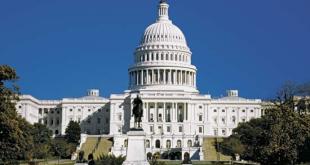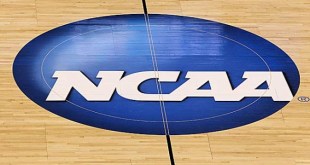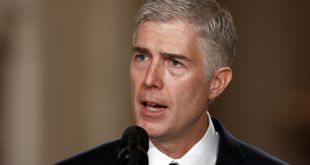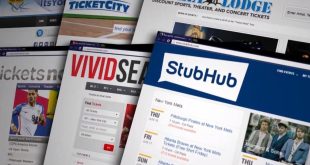The Washington Redskins and their controversial name are once again back in the national spotlight. Yesterday, United States District Judge Gerald Bruce Lee affirmed the Trademark Trial and Appeal Board’s cancellation of six of the team’s trademark registrations. In terms of the public relations battle, the ruling is certainly a big victory for opponents of the name. However, in terms of legal significance – there isn’t much.[i]
Unfortunately, as has been the case throughout the legal battle, there is a lot of misinformation and inaccurate reporting regarding the team’s trademarks and the impact of the legal decisions. For instance, it will not “soon be 100 percent legal for those dudes in the parking lot to sell knockoff shirts before the game.” Nor is it true that “once all appeals are exhausted, anyone can use the Redskins likeness without facing legal repercussions.”
The Redskins did not lose their trademarks, merely six of their federal registrations, and those registrations will not be cancelled until the team has exhausted all of its appeal options. Moreover, the team’s logo was not among the federal registrations cancelled. The team still owns three federally registered trademarks for its logo. More importantly, even if the team’s registrations are ultimately cancelled they are still free to use the name and to prosecute those who attempt to use the name or logo. Perhaps the biggest impact of losing the federal registration will be an inability to record the registration with the U.S. Customs and Border Protection Service to prevent importation of counterfeit goods.
How did we get here?
Before diving into the details of what today’s ruling means, it is important to understand the complicated history of how we got here. The legal battle for the Washington Redskins six federal trademark registrations began nearly 23 years ago on September 10, 1992 when a group of Native Americans (the “Harjo Petitioners”) filed a petition with the U.S. Patent and Trademark Office (“USPTO”) to cancel the registration of those 6 trademarks on the ground that marks were disparaging to Native Americans when registered. In 1999, after years of discovery and pre-trial motions the Trademark Trial and Appeal Board (“TTAB”)(an administrative board that hears and decides trademark disputes) issued a decision cancelling the registrations of six Redskin trademarks on the basis that the trademarks were disparaging to a substantial composite of Native Americans at the time of their registration.
The team appealed that decision to the United States District Court for the District of Columbia. In 2003, the D.C. District Court reversed the TTAB for two reasons: (1) the TTAB’s finding of disparagement was not supported by substantial evidence, and (2) the doctrine of laches – an equitable defense similar to a statute of limitations – precluded the TTAB from considering the case. The Harjo Petitioners appealed that ruling eventually as high as the United States Supreme Court before having their petition for certiorari denied in November 2009.
Meanwhile, In August 2006, Amanda Blackhorse and five other Native Americans (“Blackhorse Petitioners”) filed the petition which ultimately led to last summer’s TTAB decision to cancel six of the Redskins federal registrations. The Blackhorse Petitioners relied on primarily the same evidence, but fixed the defects that led to the Harjo decision being overturned by laches.
Last summer the TTAB issued a divided opinion finding that at the time of their registrations the six Redskin trademarks consisted of matter that “may disparage” a “substantial composite” of Native Americans. One member of the three member panel dissented because he felt the evidence was insufficient to prove that the term “redskins” was disparaging during the relevant time period.[ii]
The Redskins promptly appealed the TTAB’s latest ruling to the Eastern District of Virginia. The team made many of the same arguments it made on appeal in 1999 – insufficient evidence, laches, and violations of the First and Fifth Amendments to the U.S. Constitution. It was the First Amendment claim that garnered the Justice Department’s attention, as well as most of the media’s when the Supreme Court issued a ruling that Texas did not violate the First Amendment in its ban of specialty license plates bearing the Confederate flag.
In a 70 page ruling, Judge Gerald Bruce Lee struck down each of the Redskins attempts to overturn the TTAB’s June 2014 ruling. First, he held that the Trademark Act does not implicate the First Amendment because no form of expression is suppressed and the federal trademark registration program is government speech and thus exempt from First Amendment Scrutiny. Second, he held that the Takings Clause and Due Processes Clause claims fail because a trademark registration is not considered property under the Fifth Amendment. Third, he held that the laches claim failed because the Blackhorse Petitioners did not unreasonably delay and laches does not apply because of the public interest at stake.
Finally, he held that the Blackhorse Petitioners demonstrated by a preponderance of the evidence that during the relevant time period (1967-1990) the term “redskin” was offensive and one that “may disparage” a “substantial composite” of Native Americans, no matter what the goods or services with which the mark is used.
Common Misconceptions and Inaccurate Reports
Throughout the controversy there have been several reports about the legal aspects of the debate which have ranged from misleading to flat out false. One of the biggest misconceptions began last August when the Redskins filed their appeal. Several major news outlets began reporting that the Redskins were suing a group of Native Americans.[iii] The most egregious offender may have been MSNBC who published a story under the title, “Redskins Clear to Sue Native Americans – For Now” and then proceeded to state:
Yes, you read that right: For now, the Redskins – whose name everyone from President Obama to Sen. John McCain call offensive – can move forward with a suit against a group of Native Americans who take umbrage with the term…. Once the USPTO gave its ruling, the team went after the five individuals in court.
That was not the case at all. The Redskins didn’t “go after” Native Americans who dislike the team name. A party dissatisfied with a TTAB decision has the right to appeal that decision. By statute, a party may appeal either to the Federal Circuit or seek “remedy by a civil action” by filing in a United States district court. The Redskins elected to seek remedy by a civil action and filed in the Eastern District of Virginia.
Although the appeal is effected by filing a civil action, it is not a lawsuit, it is an appeal. Judge Lee’s November opinion on the Blackhorse Petioners’ motion to be dismissed confirmed as much and does not use the word “sue” once (go ahead, Ctrl + F, I’ll wait). While not entirely inaccurate, saying that the Redskins sued Native Americans obviously carries a negative implication when in reality it was simply an appeal. Of course “Redskins Appeal Trademark Trial and Appeal Board Decision” does not sound nearly as scandalous or drive as many clicks as “Redskins Sue Native Americans,” but it does have the benefit of being accurate.
“We’re Talking About Practice”
Another major misconception is that Redskins trademarks have been cancelled.[iv] No trademarks have been cancelled – only the federal registrations. Judge Lee, quoting Allen Iverson (unofficially the first time Iverson has been quoted by a federal judge) pointed out as much in his ruling:
Just as Allen Iverson once reminded the media that they were wasting time at the end of the Philadelphia 76er’s season “talking about practice” and not an actual professional basketball game, the Court is similarly compelled to highlight what is at issue in this case – trademark registration, not the trademarks themselves. It is the registrations of the Redskins Marks that were scheduled for cancellation by the TTAB’s decision, not the trademarks. In fact, the TTAB itself pointed out that it is only empowered to cancel the statutory registration of the marks under Section 2(a); it cannot cancel the trademarks themselves. Thus, regardless of this Court’s ruling, [The Redskins] can still use the Redskins Marks in commerce.
Another important distinction is that only six of the Redskins trademark registrations have been cancelled. The team still maintains several other marks that do not contain the term “redskin” including three for the team’s logo.
Finally, the loss of these registrations does not allow the public to start making and selling Redskins apparel. While the team no longer benefits from many of the advantages of federal registration, they still maintain significant legal rights.
State law, federal common law, and federal unfair competition law protect the Redskins trademarks; it will simply be more difficult and expensive to protect the marks. The biggest loss is likely the ability to prevent the importation of counterfeit merchandise at the border.
State trademark protections are very similar to federal laws; the primary distinction is that their reach is limited to their borders. The Redskins have registered marks in Virginia and Maryland - the primary location of their fan base.
Anyone who thinks Judge Lee’s ruling opens the door to make an easy buck selling Redskins apparel is sorely mistaken. Excluding the federal common law and unfair competition protections, Virginia law provides for criminal prosecution of the sale of counterfeit merchandise. If the offending party “possesses 100 or more identical counterfeit registered marks or possesses counterfeit items valued at $200 or more” he may be guilty of a Class 6 felony.[v]
What’s next?
The Redskins will appeal the decision to the United States Court of Appeals for the 4th Circuit. If they remain unsuccessful they could appeal as high as the Supreme Court. In the meantime, the Redskins can continue to use the trademarks in commerce and the marks will remain on the federal register, entitled to the full protection of the law.
Why Won’t Snyder Change the Name?
Because he loves his father. Dan Snyder is a pretty private guy. He doesn’t grant many interviews or issue regular press releases, so any guess at his motives is simply that – a guess. But anyone who is willing to look can easily determine that Dan Snyder’s father, Gerald, means a lot to him.
Snyder grew up a Redskins fan, and like so many fans he shared his love for his hometown team with his father.[vi] “He was my best friend in the world,” Snyder says. When Snyder purchased the team, his dad sat beside him in the owner’s box. The team’s training facility is even named after Snyder’s father. Snyder’s love for and desire to pay tribute to his father is so strong that he named his son Gerald - in contravention of Jewish custom to avoid naming newborns after living relatives. Gerald Snyder died in 2003, less than a year after the birth of his grandson.
Finally, Snyder’s understanding of the historical origins of his team’s polarizing nickname comes from his father – a freelance writer who penned pages of the Redskins media guide relating to the history of the franchise. According to Snyder and his father, the team was renamed “Redskins” in 1933 to honor its first head coach, William “Lone Star” Dietz[vii] and four members of the team who identified as Native Americans.
In sum, the Redskins are much more than a nickname to Dan Snyder. It’s a bond he shared with his father since childhood. It’s a tie that he is unwilling to sever, and he has the money and means to fight and hold onto that tie.
[i] The author is a lifelong Redskins fan. I have done my best to remain impartial and offer an unbiased analysis.
[ii] Judge Bergsman felt that the evidence was predominantly the same as the evidence found to be insufficient by the DC District Court in Harjo. “The new petitioners in this proceeding made the decision to simply re-use the trial record from the previous Harjo litigation, without substantial augmentation. The D.C. Circuit Court of Appeals did not overturn the district court’s ruling in Harjo II that the evidence introduced at the Board in the Harjo cancellation proceeding was insufficient to support the Board’s decision in that case. Nor has the passage of time aided what could be described as a stale record. The consequence of petitioners’ decision to rely on the same evidence previously found insufficient to support cancellation without substantial augmentation is that the evidence before the Board in this case remains insufficient as well.”
[iii] “Washington Redskins Suing Native Americans Offended by Team’s Name” – People Magazine; “Redskins Have The Right to Sue Native Americans Over Trademarks, Judge Rules” – The Washington Post; “Redskins Clear to Sue Native Americans – For Now” - MSNBC; “Redskins Can Sue American Indians Over Team’s Trademark” – Bloomberg Business; “Judge Rules Redskins Can Sue Group That Objected To Team Trademarks” – Sports Illustrated; “the Redskins tried to overturn the decision by suing Blackhorse and the four other Native American activists in federal court” – Washington Post. Not to be left out, Keith Olbermann, discussing the Supreme Court’s Confederate Flag decision stated, “Washington just happens to be suing a group of Native Americans, that’s good optics…”
[iv] “Trademark and patent officials canceled the trademarks this summer” – Sports Illustrated; “[a]nd last year the U.S. Patent and Trademark Office stripped the team of its trademark” – Sports On Earth; “A federal judge in Northern Virginia has ordered the cancellation of the Washington Redskins’ trademark.” - ESPN; “Judge: Redskins Have No Right to ‘Disparaging’ Trademark” – Wall Street Journal.
[v] VA Code § 59.1-92.13 A class 6 felony is punishable by “a term of imprisonment of not less than one year nor more than five years, or in the discretion of the jury or the court trying the case without a jury, confinement in jail for not more than 12 months and a fine of not more than $2,500, either or both.” The Maryland trademark laws are less severe and can be viewed here.
[vi] “His greatest passion as a kid was putting on his white Redskins jersey, with Sonny Jurgensen’s No. 9, and eating his mother’s special ‘Redskins chili’ while watching on TV with his sister and parents as the legendary quarterback led his beloved team to victory….. The Snyders in the early 1960s had a black-and-white television and Danny watched the Skins play as early as age 2. But one autumn day when he was 6, his father took him to see the real thing in vivid color; the vast green of the playing field, the burgundy and gold, the whole spectacle and pageantry of it all. ‘The fact that my father took me, and we at the time were not financially that successful; we went to a game and I don’t know how he got tickets. And it was just the whole experience. The NFL! A Redskins game!’” – Washington Post
[vii] Dietz was jailed for falsifying his Native American identity to avoid the draft in World War I. For more on the complicated identity of Dietz see this profile by Linda M. Waggoner.
 The Sports Esquires Putting Sports on Trial
The Sports Esquires Putting Sports on Trial






One comment
Pingback: Sports Law Links | The Sports Esquires